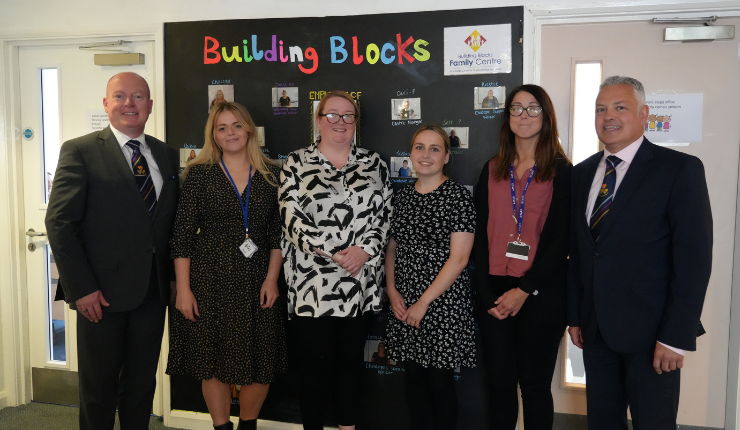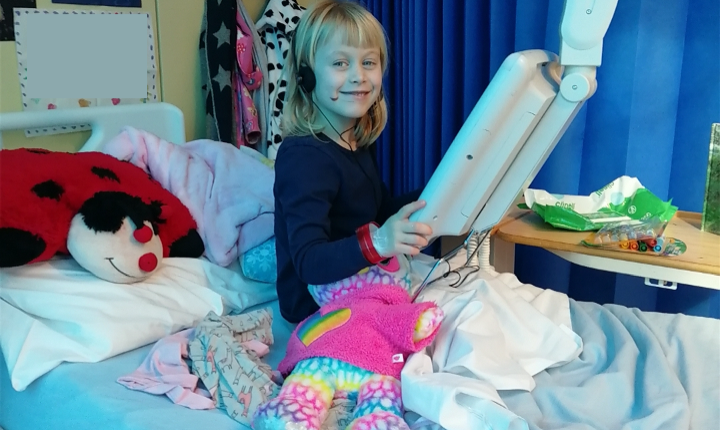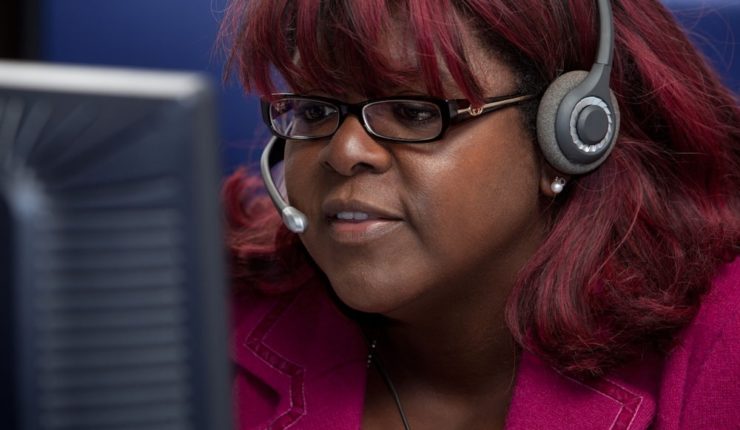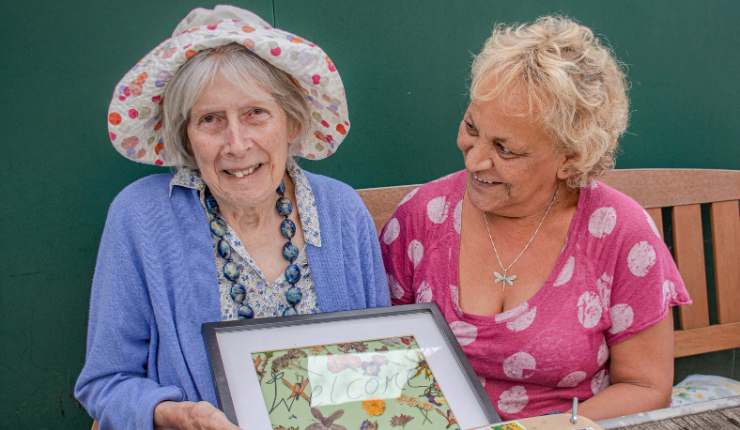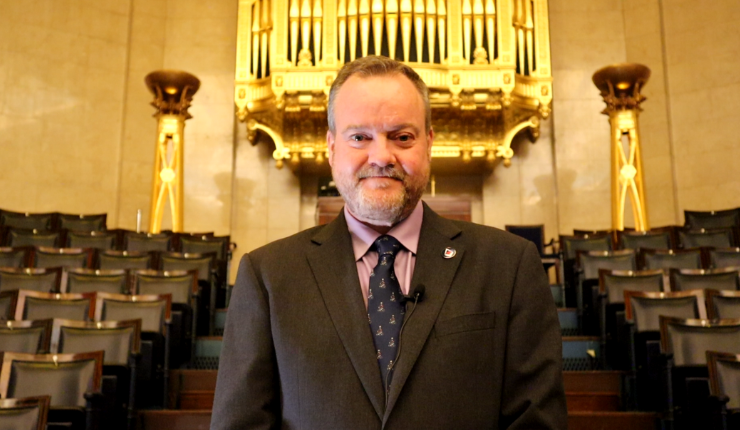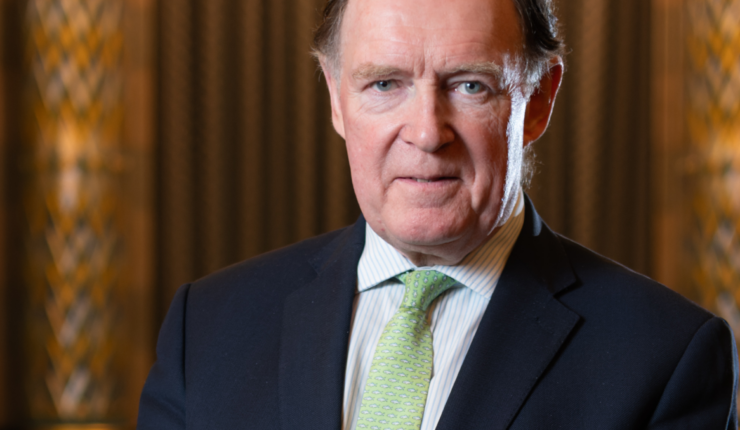Behind the scenes at the MCF
In the service of others
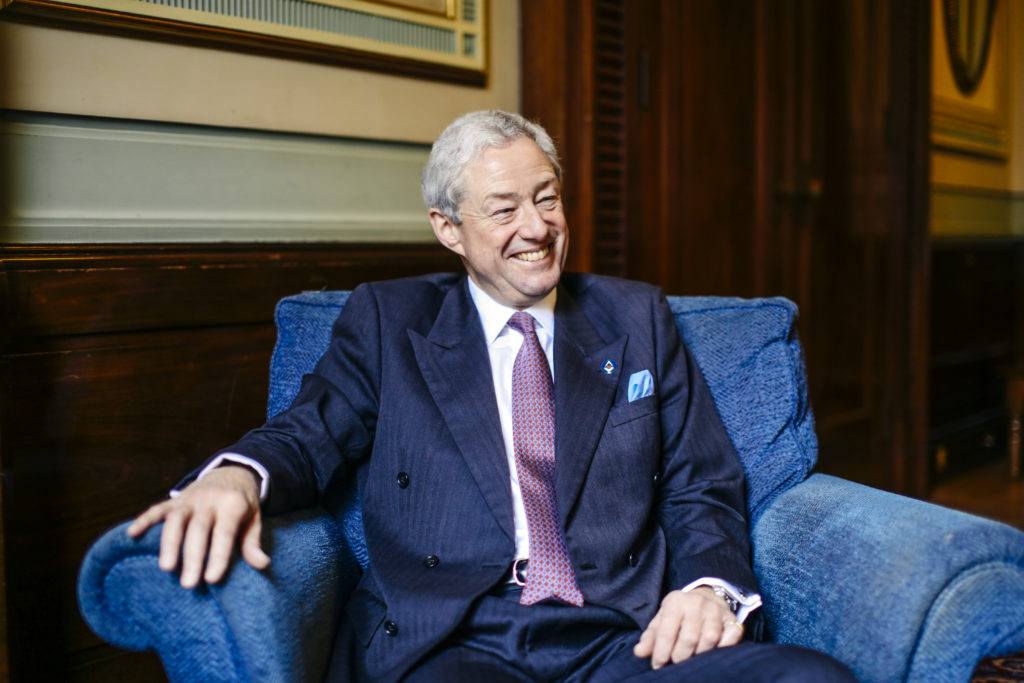
In his time as Chief Executive of the Masonic Charitable Foundation, David Innes helped countless Freemasons, and gave Freemasonry a national voice in the charity sector. He leaves a legacy to be proud of.
This article was originally published in Freemasonry Today.
Words: Peter Watts Portraits: Alun Callender
When David Innes started planning his retirement as Chief Executive of the Masonic Charitable Foundation, he anticipated a quiet six months winding down before handing over to his successor Les Hutchinson in the autumn of 2020. What he got was a worldwide pandemic and the sort of national and international crisis that the MCF was designed to help.
‘The first thing we had to do was move overnight to remote working,’ says Innes. ‘Then we set up an additional grant-making programme of £3.6 million. That was a major undertaking and pretty challenging, but we have already made nearly 200 grants of a wide variety of sizes. It has kept us busy. Put it this way, I have not had a chance to tidy the house and fill bags with things to take to charity shops. Apparently that all awaits me in retirement.’
It’s difficult to imagine the hardworking Innes having a quiet retirement even when he does step down from the MCF. As Chief Executive he was instrumental in creating the charity from the four existing masonic charities, something that provided Freemasons with a national voice in the charity sector for the first time.
‘He felt very strongly that what was best for Freemasonry was what was best for the masonic community,’ says the MCF Chair James Newman. ‘Masonic charities and Freemasonry in general owe him a huge debt of gratitude. He has created a charity that Freemasons can be justifiably proud of. Thanks to David, we have a major player that is representative of Freemasonry.’
Newman first met Innes in 2008, when Innes applied for the position of Chief Executive of the Royal Masonic Benevolent Institute (RMBI). Innes had moved into the charity sector in 2005, before which he had led the international fundraising team at Canterbury Cathedral. Prior to that he had been in the Royal Engineers, rising to the rank of Brigadier and serving in Northern Ireland and the Balkans during a military career of more than 30 years. Through this military and charity experience, he gained a skillset that he felt complemented the role on offer at the RMBI, where he was responsible for a £47 million business that looked after 1,100 residents in 18 care homes.
‘We realised within a short period of time that we had appointed somebody who could really make a difference as a charity and the way we did things,’ says Newman. ‘We saw his professional and organisational qualities early on and we also saw his caring qualities. Care homes are about the most vulnerable and he was popular with staff and residents alike.’
Innes visited each home three times per year to meet residents and care home managers. He oversaw the construction of a brand new home in Croydon, increased overall occupancy and opened care homes to public fee-paying residents for the first time. ‘Our most significant achievement was making sure that every single person in the organisation put the residents first,’ he says. ‘All of our policies, procedures and actions were focused on making sure we provided the best possible care. To this day every one of our homes is graded either good or outstanding.’
Innes is not a mason, but after he joined the RMBI he discovered some family history of Freemasonry.
‘When I was offered the job, I told my mother and that’s when she told me that my grandfather had been a mason,’ says Innes. ‘I hadn’t known that as he came from a generation of masons that didn’t really talk about it. Over 12 years, I have learnt a lot about Freemasonry and the values that underpin it, and I am entirely supportive of all of those. They sit comfortably with the values of the charity world.’
In recent years, Freemasonry has become more open and confident, and the MCF has played an important role in this outgoing approach. The charity was formed in 2016 following two reports that explored future possibilities for the four masonic charities – the Freemasons’ Grand Charity, RMBI, Masonic Samaritan Fund and the Royal Masonic Trust For Girls And Boys.
‘It became clear to all four masonic charities that Freemasonry would be better supported by a single charity,’ says Innes. ‘We wanted to provide an easier system for our beneficiaries as every charity had different principles and application processes.’
The Masonic Charitable Foundation emerged from this rationalisation and Innes saw off strong competition to be appointed Chief Executive.
His first job was to oversee the integration process and launch of the new organisation.
‘It was no mean task,’ says Newman. ‘The four charities had 500 years of history between them. He put together a senior leadership team and was instrumental in establishing the structure of how this huge new charity was going to work and how it would interact with trustees, the masonic community, UGLE and beneficiaries. We suddenly had this huge charity with assets of more than £400 million – it was quite a beast.’
It’s a challenge that Innes says he relished. His experience in the Royal Engineers and at the RMBI meant he understood both how to execute a major change-management integration project, but also appreciated the context in which it was being done. Innes needed to ensure the four old charities continued to operate while integrating them under the MCF, where there would be new grant-making processes, new financial processes and a new staff culture.
‘In the end, we provided our stakeholders with a single point of contact, a single set of guidelines and single application process,’ says Innes. ‘We have made it much easier for our beneficiaries to access help and we have created a new brand. The other key achievement was that we provided a force for Freemasonry in the charity sector. We are able to take part in policy debate at a national level. These were our goals and I’m proud we achieved them.’
Innes singles out his leadership team as well as the ‘extraordinary generosity’ of Freemasons as an essential contributory factor to the success of the MCF. Freemasonry has given an average of around £45 million in donations over the past three years to a wide range of causes, and all of that money is raised within the masonic community. Innes is particularly proud of delivering an additional £3 million of support to community causes during the Tercentenary year, as well as pandemic support. He decided to step down to give his successor time to develop and then implement a five-year strategy that will take the MCF through to 2027.
Newman will be sad to see him go. ‘David has been very supportive of Freemasonry, he is hugely professional, very much a leader, genuinely caring, extremely well-organised, very charming, calm, open, honest and has huge integrity,’ he says. ‘He expresses all the values we have within the MCF. He is an individual thoroughly worth knowing.’
As for Innes, what will he most miss about the MCF following his (socially distanced) leaving party in the autumn?
Charity is all about the support we provide. When I see the people we have been able to help, when I visit them and see what the masonic community has achieved – that is absolutely fantastic. That, undoubtedly, is what I will miss the most.
